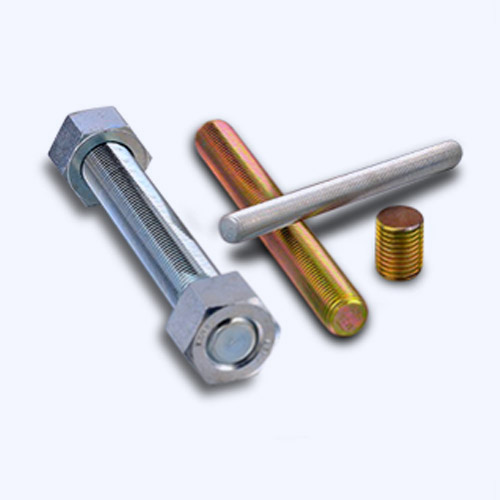Dec . 11, 2024 11:04 Back to list
Leading Manufacturer of High-Quality Stainless Steel Bolts for Various Applications
Understanding SS Bolt Manufacturers A Guide to Stainless Steel Fasteners
In today's industrial landscape, the demand for durable and corrosion-resistant fasteners has surged, leading to significant advancements in the manufacturing of stainless steel (SS) bolts. As a critical component in construction, automotive, aerospace, and various other sectors, SS bolts are essential for ensuring structural integrity and longevity. This article delves into the role of SS bolt manufacturers, the characteristics of stainless steel, and the applications of these fasteners in diverse industries.
The Importance of SS Bolts
Stainless steel bolts are renowned for their exceptional strength, durability, and resistance to rust and corrosion. This makes them ideal for use in environments that are subjected to moisture, chemicals, or extreme temperatures. Manufacturers focus on producing high-quality SS bolts that can withstand these harsh conditions, ensuring safety and reliability in various applications.
Characteristics of Stainless Steel
Stainless steel is an alloy primarily made of iron, with a minimum of 10.5% chromium content, which imparts its corrosion-resistant properties. Other alloying elements like nickel, molybdenum, and titanium can also be introduced to enhance specific characteristics such as strength, ductility, and corrosion resistance. The most common grades of stainless steel used for bolt manufacturing include
1. 304 Stainless Steel Known for its excellent corrosion resistance and good mechanical properties, 304 stainless steel is widely used in general applications, including food processing and pharmaceuticals.
2. 316 Stainless Steel This grade includes molybdenum, which provides superior corrosion resistance, especially in chloride environments, making it an ideal choice for marine applications and chemical processing.
3. 410 Stainless Steel A martensitic stainless steel, 410 is magnetic and offers good wear resistance. It is often used in applications requiring heat treatment.
The Manufacturing Process
SS bolt manufacturers employ advanced techniques to produce high-quality fasteners
. The manufacturing process typically involves the following steps1. Material Selection Choosing the right grade of stainless steel based on the intended application and environmental conditions is crucial. Manufacturers often consult with engineers to determine the most suitable material.
ss bolt manufacturer

2. Forming and Shaping The selected stainless steel is heated and shaped into bolts using various methods, such as forging, machining, or cold heading. Each method has its advantages, with cold heading offering precision and cost-effectiveness for high-volume production.
3. Heat Treatment To enhance the mechanical properties and corrosion resistance of the bolts, heat treatment processes like annealing may be applied. This step ensures that the final product meets industry standards for strength and durability.
4. Surface Finishing Surface treatments, such as passivation, may be performed to remove impurities and enhance the corrosion resistance of stainless steel bolts. Additionally, manufacturers may apply coatings for added protection and aesthetic appeal.
5. Quality Control Rigorous testing and quality assurance measures are implemented throughout the production process. This includes inspections for dimensional accuracy, tensile strength, and corrosion resistance, ensuring that the final product meets industry standards and customer specifications.
Applications of SS Bolts
The versatility of stainless steel bolts allows them to be used in a wide range of applications, including
- Construction In the construction industry, SS bolts are essential for securing structural components, such as beams and columns, as well as for fastening fixtures and fittings.
- Automotive Many automotive parts rely on the strength and durability of stainless steel bolts, especially in areas exposed to harsh conditions, including engine components and exhaust systems.
- Aerospace In aerospace applications, the lightweight and high-strength characteristics of stainless steel bolts are crucial for ensuring the safety and performance of various aircraft components.
- Marine Due to their corrosion-resistant properties, SS bolts are widely used in marine environments for shipbuilding and repair, as well as for mooring and anchoring systems.
Conclusion
The role of SS bolt manufacturers is vital in providing high-quality, durable, and corrosion-resistant fasteners that meet the demands of various industries. With advancements in manufacturing techniques and the ongoing development of stainless steel alloys, the future of SS bolts looks promising, ensuring that they continue to play a critical role in construction, automotive, aerospace, and beyond. As industries evolve, so too will the innovations in the production and application of stainless steel bolts, reinforcing their importance in our everyday lives.
-
The Ubiquitous Reach of DIN934 in Application Realms
NewsMay.16,2025
-
Exploring Different Bolt Types
NewsMay.16,2025
-
Cracking the Code of Sleeve Anchor Mastery
NewsMay.16,2025
-
Clamp Design Principles,Types and Innovations
NewsMay.16,2025
-
Artistry Inspired by the Humble Anchor Bolt
NewsMay.16,2025
-
A Deep Dive into Screw Types
NewsMay.16,2025


